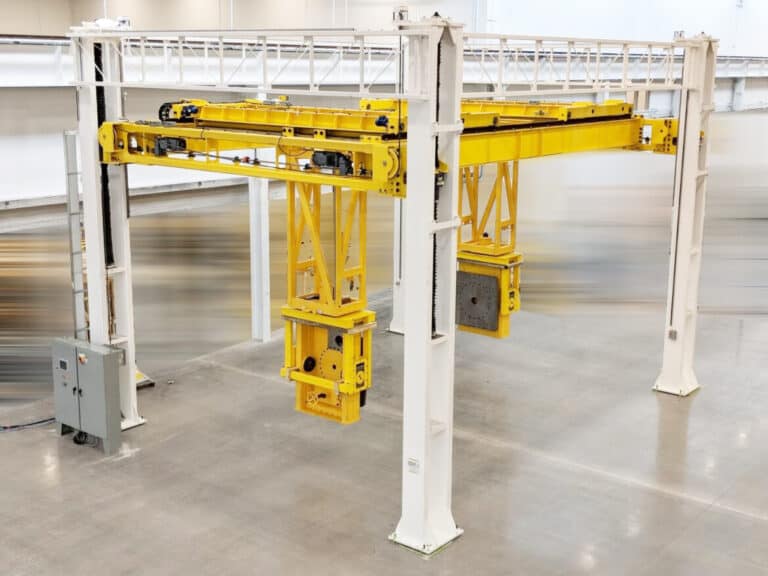What’s included of services in freight shipping
Wiki Article
Comprehending the Inclusions of moving and Freight Forwarding on the planet of Residential and International Delivery
Steering with the complexities of moving and Freight forwarding can be challenging. Both processes include distinctive procedures and requirements that are vital for successful transport. Recognizing the differences in logistics, paperwork, and risk monitoring is important for people and companies alike. This understanding can greatly impact the efficiency and safety of deliveries. Several are unaware of the details components that affect the total experience and end results. What elements should one think about to assure a smooth transition?The Essentials of moving and Freight Forwarding
moving and Freight forwarding are essential components of the worldwide logistics sector. They help with the transfer of goods and individual belongings across domestic and global boundaries. moving mostly includes the moving of individuals or family members, incorporating commercial and domestic needs. It generally includes packing, loading, delivering, and unloading things at the location. In contrast, Freight forwarding is focused on the shipment of items, often wholesale, using numerous transportation settings, such as land.freight, sea, or air forwarders act as middlemans, collaborating logistics to guarantee timely distribution while steering with facility regulations and customs treatments. Both procedures need mindful preparation, company, and communication to ensure effectiveness and decrease interruptions. Recognizing these principles is vital for any person entailed in logistics, as they prepared for advanced aspects of delivery and transportation management.Key Components of Freight Forwarding Solutions
Freight forwarding services encompass several vital parts that assure smooth transportation of items. Key obligations of Freight forwarders consist of managing logistics, working with deliveries, and dealing with customs clearance. In addition, understanding essential delivery paperwork is critical for compliance and efficient motion of cargo.Freight Forwarder Responsibilities
A trustworthy Freight forwarder plays a vital duty in coordinating the transportation of products, making sure that deliveries are handled successfully and in compliance with policies. Their duties encompass different vital tasks, consisting of picking optimal transportation courses, bargaining Freight rates, and taking care of logistics. They act as middlemans in between shippers and providers, guaranteeing that cargo is properly packaged and classified for risk-free transportation. Furthermore, Freight forwarders track deliveries, providing updates to customers about the condition and anticipated shipment times. They also analyze and handle dangers connected with transport, suggesting insurance policy options as required. By assisting in interaction and documents, Freight forwarders streamline the shipping process, minimizing possible delays and boosting total supply chain efficiency.Delivering Documentation Essentials

Understanding Customs Clearance and Documents
Exact documents is essential in the customs clearance process, as it guarantees compliance with various policies. A summary of customizeds policies highlights the intricacies encountered by carriers and Freight forwarders. Common clearance challenges can greatly affect delivery timelines and prices, making understanding this facet crucial for reliable logistics.Relevance of Accurate Documentation
Steering with the complexities of worldwide delivery calls for an eager understanding of personalizeds clearance and the critical role of paperwork. Precise paperwork is important for guaranteeing that shipments adhere to regulations and reach their destinations without hold-ups. Appropriately prepared papers, including bills of lading, business billings, and packaging listings, assist in smooth interactions with customizeds authorities. Errors can lead to delivery hold-ups, fines, and even confiscation of items. In addition, detailed documents help in monitoring shipments and resolving conflicts. Subsequently, businesses took part in moving and Freight forwarding should focus on meticulous paperwork techniques to navigate the detailed landscape of worldwide delivery efficiently. This persistance not just improves procedures yet additionally improves customer fulfillment by making certain timely shipment.Customizeds Regulations Review
Guiding custom-mades laws is a vital facet of worldwide profession that straight impacts the success of moving and Freight forwarding operations. Efficient customizeds clearance requires an understanding of various regulations, consisting of tolls, responsibilities, and import/export restrictions. Accurate documentation is essential, as it ensures compliance with lawful needs and facilitates the effective motion of items throughout borders. Secret records often include industrial billings, packaging checklists, and costs of lading, which give thorough information about the shipment. Additionally, customs brokers play an essential role in steering complicated guidelines, working as intermediaries between shippers and customs authorities. By preserving detailed knowledge of custom-mades procedures, services can substantially lower delays and minimize prices connected with global shipping.Common Clearance Difficulties
Numerous obstacles can occur throughout the customizeds clearance procedure, commonly complicating the motion of goods throughout boundaries. One considerable concern wants documents, which can cause fines and delays. Importers and merchants need to guarantee all needed documentation, such as invoices, packaging listings, and certifications of origin, is precise and full. Additionally, disparities in valuation can activate analysis from customizeds authorities, causing additional obligations or assessments. Language barriers might also posture challenges, as miscommunication can cause misunderstandings relating to laws. Changes in custom-mades laws can produce confusion, necessitating continuous alertness by shippers. Ultimately, getting over these clearance challenges needs comprehensive prep work and a clear understanding of personalizeds demands to facilitate smooth global purchases.Packaging and Identifying Demands
Often forgotten, packaging and labeling needs play a crucial function in the delivery procedure, ensuring that goods are shielded and easily identifiable throughout their journey (international shipping). Correct product packaging safeguards items from damage throughout transit, while additionally assisting in reliable handling and storage. Making use of appropriate products, such as bubble cover, foam, or tough boxes, can stop breakage and loss.Labeling is just as crucial. Exact and clear labels share vital information, consisting of the destination, handling directions, and contents. Tags must abide with policies details to worldwide and residential shipping, which might include unsafe materials recognition or customizeds declarations.Moreover, standard labeling practices streamline the tracking procedure and enhance general logistics efficiency. By sticking to packaging and labeling needs, companies minimize the threat of delays, damage, or misdelivery. Inevitably, these methods contribute substantially to the success of moving and Freight forwarding procedures, guaranteeing a smooth delivery experience for all parties entailedTracking Deliveries: Value and Techniques
Effective product packaging and labeling set the foundation for effective shipment administration, yet tracking shipments is just as crucial in the shipping procedure. Shipment tracking offers real-time presence, which helps services and customers check the development of their items. This transparency enhances client complete satisfaction, given that clients can stay notified concerning distribution timelines and any possible delays.Several approaches help with efficient tracking. Barcode scanning is an usual strategy, making use of one-of-a-kind identifiers to keep an eye on bundles throughout their trip. In addition, general practitioner modern technology enables exact area monitoring, permitting prompt updates and improved logistics management. Many delivery firms now supply digital systems and mobile applications that supply customers with simple access to tracking information.The significance of shipment monitoring can not be overemphasized; it reduces the risk of shed or harmed products, enhances functional performance, and promotes count on between recipients and carriers. As a result, integrating effective tracking approaches is vital for effective residential and global delivery operations.Insurance coverage Options for Your Goods

Protecting insurance policy for goods in transit is a vital factor to consider for individuals and companies alike. Insurance policy choices differ based on the kind of shipment, worth of goods, and details risks entailed. Common kinds consist of provider responsibility, which covers loss or damage while in transportation, and full-value insurance, supplying extensive protection for the complete value of the goods.Shippers may additionally consider marine insurance policy for international shipments, shielding against dangers linked with sea transportation. It is necessary to assess the certain demands of the shipment and evaluate the conditions of any policy.Furthermore, comprehending exemptions and constraints is crucial to prevent possible voids in coverage. Carriers need to engage with insurance experts to discover customized solutions that fit their one-of-a-kind circumstances. Eventually, buying the ideal insurance policy can mitigate financial threats and provide assurance during the shipping procedure.
Choosing the Right moving and Freight Forwarding Service
When selecting a relocating and Freight forwarding solution, it is vital for people and businesses to carefully assess their particular needs and priorities. Factors such as the volume of goods, destination, and timeline play a significant role in this decision-making process. Researching various suppliers is suggested; contrasting their services, pricing, and customer evaluations can disclose beneficial insights.Additionally, it is necessary to take into account the experience and proficiency of the company in managing certain kinds of freight, particularly for worldwide shipments that might involve personalizeds clearance. Openness in prices, including any hidden charges, should likewise be scrutinized.Furthermore, assessing the level of customer assistance provided is crucial, as prompt communication can mitigate concerns during transit (overseas movers). Lastly, confirming the availability of insurance coverage options guarantees that items are shielded throughout the delivery procedure. By taking these organizations, steps and individuals can make informed choices that straighten with their logistics demandsOften Asked Concerns
What Kinds Of Goods Can Be Shipped Internationally?

How Do Shipping Expenses Range Various Service Providers?
Delivering expenses differ greatly in between providers because of elements such as service rate, freight kind, range, and additional solutions used. Each service provider's prices version shows these variables, affecting total shipping expenses for customers.
Can I Ship Hazardous Products or Perishables?
Shipping harmful products and perishables goes through stringent regulations. Service providers commonly require specific packaging, labeling, and paperwork. Shippers have to ensure compliance with regional and global legislations to stay clear of charges and ensure secure transportation.What Should I Do if My Shipment Is Delayed?
When faced with a shipment delay, one ought to first call the service provider for updates. Then, assess any type of notifications obtained, examine different services, and keep all parties informed concerning the scenario to reduce disruptions.Are There Weight Boundary for Shipping Containers?
Weight restrictions for shipping containers vary depending on aspects like container size and delivery laws. Usually, typical containers have an optimum gross weight of around 30,000 to 32,000 kilos to guarantee safe transportation and handling. In contrast, Freight forwarding is focused on the shipment of products, commonly in mass, making use of various transportation modes, such as land.freight, air, or sea forwarders act as middlemans, working with logistics to assure prompt distribution while steering via facility laws and personalizeds treatments. Trick duties of shipping companies Freight forwarders consist of handling logistics, collaborating shipments, and dealing with customizeds clearance. A trusted Freight forwarder plays a necessary role in collaborating the transport of products, guaranteeing that shipments are taken care of effectively and in conformity with laws. Effective product packaging and labeling established the foundation for effective delivery monitoring, however tracking shipments is just as necessary in the delivery procedure. Many shipping companies currently provide digital systems and mobile applications that offer customers with very easy access to tracking information.The relevance of shipment tracking can not be overemphasized; it reduces the danger of lost or harmed products, boosts operational performance, and promotes trust in between carriers and recipients.Report this wiki page